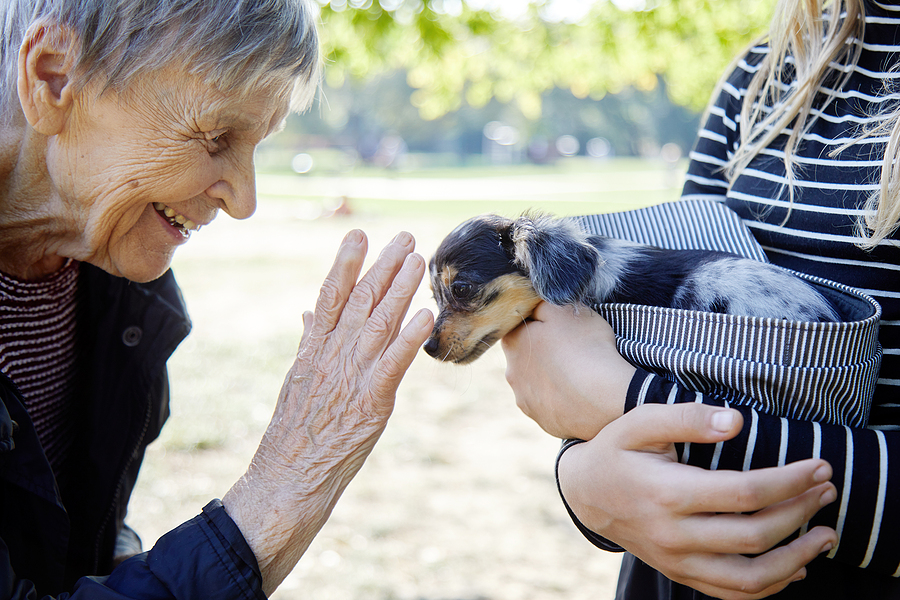Although different people thrive in different environments, it’s hard to deny the research showing the health benefits often experienced by seniors who opt to move to a continuing care retirement community (CCRC, also called a life plan community).
For example, the 2018 Age Well Study found that, when compared to a demographically similar control group of “community-dwelling” seniors (those not living in a CCRC), CCRC residents have greater emotional, social, physical, intellectual, and vocational wellness. A 2020 report out of the U.K. found similar benefits to seniors’ physical activity and overall health when they reside in a CCRC-type environment.
The physical health benefits of CCRC living are increasingly clear, but the mental health advantages to moving to a CCRC may be equally — or even more — important for seniors.
>> Related: New Study Shows CCRC Residents ARE Happier and Healthier
Prevalence of anxiety and depression
The mental health component of wellness has been a huge focus for many people lately. To one degree or another, the pandemic has created stress, loneliness, depression, and/or anxiety for nearly everyone. Seniors — who are likely to suffer more severe physical illness should they contract COVID-19 — also may have been particularly hard-hit by the mental health challenges created by the pandemic, even if they weren’t as likely to report it.
The Household Pulse Survey conducted by the National Center for Health Statistics (NCHS) and the Census Bureau in the spring of 2020 found that, among 42,000 adult respondents, 30 percent said they were experiencing anxiety-related symptoms, and 24 percent had depression symptoms as a result of the pandemic.
Interestingly though, among survey respondents ages 80 and older, only 11 percent reported symptoms of anxiety, and only 9 percent reported depression symptoms — substantially lower than the rates reported by the overall adult population. This is despite the fact that studies have found that seniors do in fact experience anxiety with the same frequency as other adult age groups.
What could account for these disproportionately low anxiety numbers reported by seniors amid the pandemic?
Overcoming taboos related to mental health
Researchers suggest that this discrepancy in the Pulse Survey findings may be the result of seniors’ unwillingness to self-report mental health challenges.
Generational taboos around mental health may lead some seniors to suffer unnecessarily. Older people may fall into the trap of dismissing such feelings, telling themselves they should just “get over it” if they are feeling depressed or anxious.
But just like high blood pressure or diabetes, these mental health conditions are treatable in many cases, and exposing and eliminating such stigmas can encourage older people to get the help they may need.
This is an especially important hurdle to overcome since some mental health concerns are common among seniors. For example, the loss of loved ones and battling chronic health conditions can lead to depression, and anxiety is prevalent among people with dementia.
>> Related: Eliminating Taboos to Help Address Anxiety Among Seniors
CCRCs support seniors’ mental health
In addition to keeping seniors physically healthier (as discussed above), CCRCs and other senior living providers also give their residents access to a variety of programs and services that can improve their mental wellbeing. This is likely why research (like the AgeWell Study and other research studies) consistently shows that CCRC residents are typically happier, socialize more, feel a greater sense of support, connectedness, and security, and suffer less loneliness than their “community-dwelling” counterparts.
A recent article highlighted how one CCRC resident, who had suffered a stroke, benefited from the support services provided by her community. Through a combination of physical and music therapy, she was able to regain her mobility and her voice, and the social support of the community helped her stave off depression — a common issue among those who have suffered a serious physical ailment or disability.
Whether it is dining with friends, enjoying a continuing education seminar, fitness class, or volunteer opportunity, or taking advantage of on-campus behavioral health services, CCRCs provide a wide array of opportunities that can improve their residents’ mental health.
Of course, some of these programs have had to be curtailed during COVID, but senior living communities managed to find creative new ways to keep their residents engaged in a safe, socially distant manner. And now that many seniors are vaccinated, these restrictions gradually are being lifted.
>> Related: CCRC Life Enrichment Programs Add Extra Value During Pandemic
Unique opportunities that help seniors thrive
In addition to standard fitness classes, which can help alleviate stress, many CCRCs offer other unique mental health-boosting opportunities to residents, which may include:
- Music and art therapy
- Scent therapy
- Canine or equine therapy
- Meditation, yoga, and tai chi
- Snoezelen therapy rooms
- Support groups
Such therapeutic programs can help those who suffer from long-term or acute anxiety or depression (such as we’ve seen during the pandemic), as well as those battling conditions like Alzheimer’s disease or cancer, recovering from a stroke, coping with grief, and more.
If you are dealing with anxiety, depression, or another mental health condition, it is important to remember that you are not alone. Support is available to you, so talk with your healthcare provider about nearby resources that can help. And for those seniors who opt to live in a CCRC, if you are struggling with a mental wellness issue, be sure to tap into the support services available to you in your community.

FREE Detailed Profile Reports on CCRCs/Life Plan Communities
Search Communities






